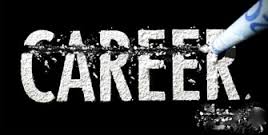Heroin withdrawal syndrome

Heroin withdrawal syndrome. When one is addicted to heroin, the brain suffers the most
Heroin withdrawal syndrome: Coping strategies
Heroin withdrawal syndrome effects and coping strategies are some of the most disturbing fears most addicts sight as reasons of their unwillingness to enroll for treatment in various health facilities for the timely recovery process. With this attitude, treatment becomes very difficult because one has to begin by first addressing the issues of denial. Making such patients come to terms with their health situation is often very difficult. Some of the pertinent questions we should be asking ourselves now that we are aware that heroin withdrawal syndrome and coping strategies are the problems may include the following: what are the actual effects of these heroin withdrawal symptoms – and how do they impact the long-term health and well-being of the individual patients?
As an institution (AWAREmed Health and Wellness Resource Center under the able leadership of Doctor Dalal Akoury’s care) we are on top of things and our objective is to kick out all manner of addictions from our societies. That is why we only post worthy health articles tailored at helping our clients/patients get the much-needed health solutions. Therefore in this article, we have particularly designed it to convey health information in the simplest language to help in shedding some light on the impact of heroin withdrawal syndrome and also to help those who are going through the process en route to their recovery whether you are directly or indirectly affected.
Heroin withdrawal syndrome: Withdrawal from heroin can cause some discomfort
There are a number of uncomfortable side effects that accompany heroin withdrawal. These symptoms are not all that life threatening as is always the general rule, but all the same, they are the leading reason why individuals relapse or add urgency to their search for that “next fix.” Some of the uncomfortable heroin withdrawal symptoms include:
- Anxiety
- Chills
- Fever
- Restlessness
- Sleeplessness
- Sweating
- Twitching
Heroin withdrawal syndrome: Withdrawal can also cause emotional issues
Besides the known physical discomfort that goes hand in hand with heroin withdrawal, doctor Akoury says that there are a number of mental health issues that the individual may experience as well, such may include the following:
- Depression
- Anxiety
- Suicidal thoughts
- Sudden mood swings
- Irritability
Heroin withdrawal syndrome: Relapse
Finally, doctor Akoury agrees that the most serious effect of heroin withdrawal syndrome is relapsed. Because individual addicts are not able to live with the discomfort of withdrawal they often go back to their old habits. To escape from this discomforting experience in many instances they will turn to the only thing they know best that can provide relief which is more heroin even though they are struggling to stop their addiction to the drug itself. This is the reason why most if not all heroin rehab programs insist that the individuals must first complete the heroin detox process before they can be allowed to moving on into the main population of the facility. The risk of relapse is, therefore, inevitable in most cases. However when it happens, it will not be a sign of failure, you can always pick up the pieces and get back to the recovery process and defeat the problem. You may want to call doctor Akoury for further guidelines over this whole issues of withdrawal syndrome and coping strategies for a much better performance on your part.
Heroin withdrawal syndrome: Coping strategies Coping strategies



